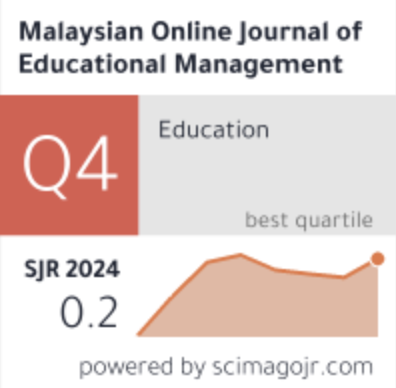STRATEGIC THINKING AND STRATEGIC LEADERSHIP FOR CHANGE: LESSONS FOR TECHNICAL UNIVERSITIES IN GHANA
DOI:
https://doi.org/10.22452/mojem.vol6no1.4Abstract
Global competition is forcing tertiary institutions to excel in knowledge-creation that are relevant and innovative. Innovations bring solutions to societal problems. Perhaps a new system of thinking will enhance the relevance and sustainability of Ghana’s new Technical Universities (TU) that were established by PNDC Law 321 to provide technical leadership, entrepreneurial solutions, and support of industries for its national development. For strategic thinking, the TUs are advised to avoid the Polytechnic traditions and be transformed by ‘lessons’ from other institutions such as Germany’s University of Applied Research. The purpose of this study was to examine institutional leadership and policy practices of an African institution, (herein referred to as PaceSetter Institute or PSI) to serve as lessons for Ghana’s Technical Universities towards sustainable development. Qualitative data came from field notes during interviews, interactions, observations, and desk reviews. Using an act of serendipity approach to case study, data revealed lessons such as: (i) Strategic thinking and leadership, (ii) Excellence in scholarship of engagement, (iii) Change in professionalism and specialization, and (iv) Entrepreneurship. The researchers urged TUs to consider strategic thinking for sustainable development of their institutions to bring social enterprise to academic pursuits, making profit by applied research, and consider scholarship of engagement with the Ghanaian society and change. The recommendations also focused on each TU envisioning on how to become a “Centre of Excellence” in Ghana by showcasing faculty and students’ work, setting high standards of scholarship and professionalism, and entrepreneurship that brings solution to social problems









